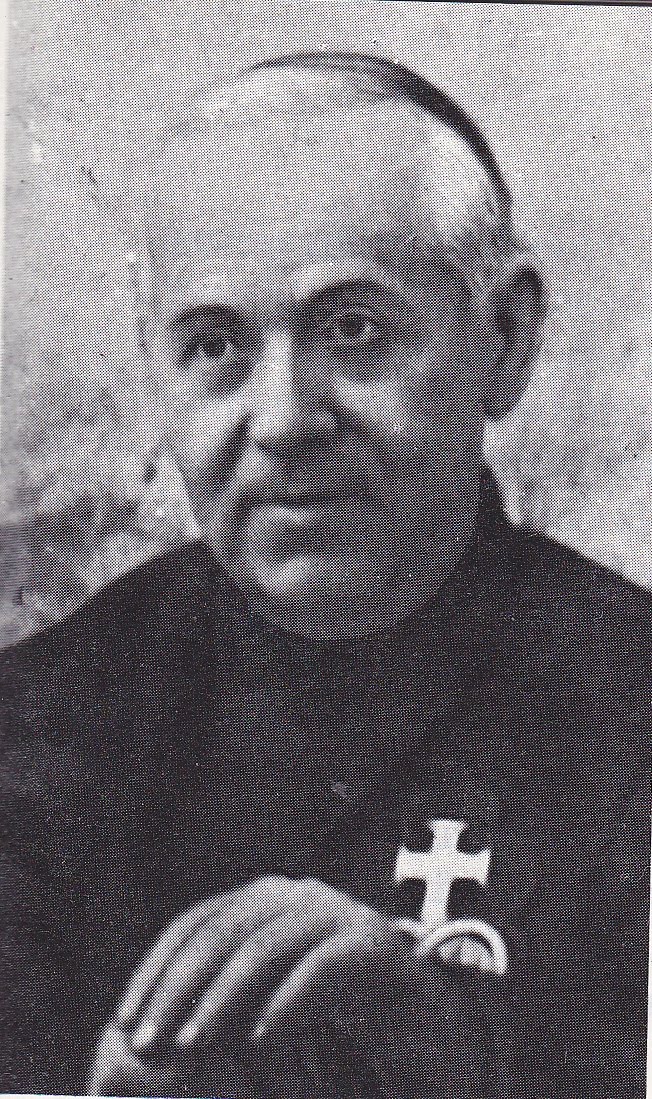By means of prayer, the soul is enabled to lift itself near to God and thus live a spiritual life – that of Christian perfection. This spiritual life has various degrees, and the soul that is enabled to pass through all of them will assuredly come to a full union with God.
The first degrees are those of ordinary prayer and meditation by which we consider the eternal truths and apply them to ourselves, so as to excite corresponding heartfelt sentiments. Many souls stop at these first degrees which are those of the so-called ascetic life. Others pass from meditation to contemplation, which belongs to the mystical life.
Contemplation is an elevation of the soul to God and heavenly things, by means of a simple intellectual-loving gaze that brings an absorbing peace ands light into the mind and heart of the contemplative.
In meditation, the soul must often labor much in the exertion of its powers – memory, understanding, and will. In contemplation she has only to gaze and admire the beauty of the object that God shows here.
She does not then exercise herself in reflections, applications, reasonings, etc., but remains, as it were, in mental suspense before the great things that draw her out of herself in admiring wonder. We may say that the contemplative does here on earth in a limited degree what the blessed do in Heaven.
Having made the above remarks on prayer in general, in order to be better understood in a matter concerning which many do not have clear ideas, we come now directly to Gemma. In the first place we shall consider her spirit of prayer in general, then the lofty flights of her soul by the ways of contemplation.
From her earliest years, Gemma attended with great diligence to the exercise of prayer, thus meriting a constant increase of grace. We have noticed her earnest entreaties to her saintly mother and to her mistresses in order to be taught how to pray; and how, when she came to know something about it, avoiding the company of others she used to pass long hours of the day working and praying alone.
To this source we must trace her great dread of all that, outside God, could occupy her mind or heart or distract her thoughts. Hence that absolute detachment from all created things; that rigid watchfulness over her senses; that extreme delicacy of conscience; that continual mortification of her will and inclinations, and all those rare virtues that she practiced without ceasing.
Thus she prepared herself to enter into converse with her Lord. Such efforts could not rest without reward from God’s own Heart, and soon she came to fix her gaze on Him as the eagle gazes at the sun and is not dazzled. Now if the object of prayer is to stand before God and treat with Him alone by faith, we must needs conclude that this chosen soul attained all the ends of prayer in a most exalted degree.
Generally speaking, in order to commune with God, she had no need to use effort to concentrate her thoughts such as others much resort to. Our Lord was always present to her, and nothing could turn her attention from Him, while at the same time she was most exact and attentive to every duty.
Once only, and for a moment, can I remember to have been distracted from her actual attention to God. This is how it was:
“Signor Lorenzo,” she said, “gave me some accounts to make up for him, and as they were rather difficult, I applied such attention to them that I lost sight of God. Father, you see here how imperfect I am. Because of a few figures and a material interest, I left Our Lord. This thought disturbed me greatly for a short time. I asked God to pardon me, and He did so at once.”
It was enough to see this girl even at a distance, in order to be convinced that she was absorbed in God. Her dignity of countenance, gravity of bearing and moderation of words; her angelic modesty beautified by a spontaneous smile that always played around her lips.
All went to show the beholder that Gemma was only in body a dweller in this world. This uninterrupted attention to heavenly things had become so natural to her, that she would have had to do herself violence to think of anything else.
Finding myself one day at table with the family, who are benefactors to our Institute, on seeing Gemma, who was sitting opposite me, all absorbed in God, I used my authority as her spiritual Father and told her to distract herself, that not being the time or place for prayer. At my words I saw that she turned pale and seemed to tremble all over.
She continued to eat as if her manifest mental suffering was nothing. After table, calling her aside I saw that she was perspiring profusely. “Now what is this?” I said to her, wondering. “You know it, Father,” she answered with her usual candor. “Oh, did you not take Jesus from me at table? And can I live without thinking of Him?” I turned the subject, and with an air of reproof sent her to change her things. In about an hour I renewed the precept and the strange phenomenon repeated itself. After this I left her free, as it pained me greatly to see how much suffering my prohibitions caused her.
Gemma’s constant attention to God did not consist merely in a recollection that many souls may have, who feel themselves in the Divine presence. It was an exercise of exalted supernatural prayer, spontaneous and full of sweetness. She saw her God, spoke and listened to Him, found her whole delight in Him, and, passing with marvelous ease from the most abstract contemplation to the most obvious and commonplace ideas, she laid her doubts before Him, asked graces for this or that soul, and thanked Him for those already received.
Thus we learn the nature of this holy child’s recollection and of her spirit of prayer. Thus she occupied twenty-four hours of her day. I say twenty-four hours, because taking as she did very little sleep and at short intervals, her prayer was scarcely interrupted. On awakening she immediately took it up where she had left off. She rose from bed without weariness or heaviness of brain, and whoever might be present as she got up would have seen her sign herself devoutly with the crucifix that she always kept in her hand while sleeping, kiss it and then smile with heavenly grace. Making allusion to her nocturnal interviews with her Lord, she was once, when in ecstasy, heard to exclaim: “See, O Jesus, even at night, those hours, those hours! I sleep, but, O Jesus, my heart does not sleep. It watches with Thee at all hours.”
The reader will observe that formal vocal prayers were little used by this angelic soul. The Rosary was said in the family. Sometimes she recited that of the Seven Dolors and of the Passion as an introduction to meditation on the Sorrowful Mysteries, and nothing more. Being helped much better by the light she received from above, she formed her own prayers according to her wants. “It does not help me,” she said to me, “to read prayers from books, nor to repeat Our Fathers and Hail Marys. They don’t satisfy me, and I get tired. So I do for myself as best I can.”
It will, I am sure, gratify my readers if I give them here some more examples of
Gemma’s improvised prayers such as were gathered faithfully from her lips when taken unawares as she prayed aloud. Possibly they will not be found inferior to the soliloquies of St. Augustine.
“Praise to the unbounded love of Jesus, Who, moved to pity by my misery, offers me every means of coming to His Love! Thou, Jesus, art a treasure not known to be before, but now Jesus I have known Thee. Thou art all mine, especially Thy Heart. Yes, Thy Heart is mine, because Thou hast so often given It to me. But Thy Heart, Jesus, is full of light, and mine is full of darkness. When, oh, when, shall I pass from this darkness to that clear light of my Jesus? But how shall I be able, my God, to praise Thee? When Thou didst create me, Thou madest me without me. So likewise, even without me, Thou has the praise Thou deserves. Then, let all Thy works, done from the sublimity of Thy majesty, praise Thee. My mind has beginning and end, but the praise that God possesses shall never have an end and when we praise Thee, O Lord, it is not we, it is Thou Who praisest Thyself in Thyself.”
This article is taken from a chapter in The Life of St. Gemma Galgani by her spiritual director Ven. Fr. Germanus, C.P. which is available from TAN Books.








